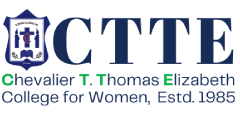This Section details the different courses undertaken, over a period of four Semesters to complete the Master of Arts – English : Postgraduate Program.
The courses are of the following varieties, Core papers that are mandatory, Electives that can be chosen from list of available electives and Laboratory practicals if applicable. The courses when successfully completed, collectively contribute towards the minimum requirement of awarding a Master’s degree.
Program Outcomes
On successful completion of Master of Arts programme, students will become socially responsible citizens with analytical skills, advanced speaking and writing skills, personal and professional abilities, and potential for independent research across social and cultural boundaries.
Program Specific Outcomes
By the end of M.A. English programme, students will be able to employ their knowledge of literary and critical traditions to contextualise, analyse, and critique literary texts, as well as express their creativity through literary compositions and translations.



